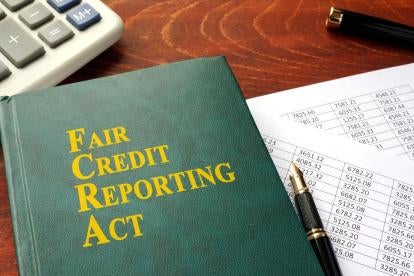It happens frequently: A plaintiff commences litigation in state court and for various strategic reasons, a defendant decides it would be better off removing the case to federal court. However, recent case law from the Supreme Court regarding what disputes may be removed resulted in a groundbreaking ruling from the Eleventh Circuit in a FCRA case finding that third-party counterclaim defendants cannot remove under 28 U.S.C. Section 1441(c)..
The underlying facts in Bowling v. United States Bank Nat’l Ass’n are relatively straightforward. Case No. 17-11953, 2020 U.S. App. LEXIS 19435. In Bowling, a couple purchased a home and to pay for it, obtained a 30 year mortgage. Id. at *2. Over several years, the loan servicer of their mortgage was replaced by another company and then replaced again (this happens routinely). Eventually, the couple stopped making payments, defaulted, and refused to vacate their residence after the home was purchased in a foreclosure sale.
In response, the new purchaser of the home filed a complaint for ejectment in Alabama state court. The prior homeowners then filed an “answer and counterclaim” against their former loan servicers—three entities in total. The prior homeowners asserted various state and federal claims against their former loan servicers, including under the FCRA. The former loan servicers (the third-party counterclaim defendants) then removed the entire case to federal court—a decision that was opposed by the prior homeowner plaintiffs, and ultimately appealed to the Eleventh Circuit. Id.
Until this time, Eleventh Circuit precedent regarding removal was governed by the Carl Heck case, in which the Court had ruled that third-party claims in a dispute (not only those brought by the original plaintiff) could be removed from state to federal court, under certain circumstances. The Carl Heck decision, however, preceded the Supreme Court’s ruling in Home Depot U.S.A., Inc. v. Jackson, 139 S. Ct. 1743 (2019). There, the Supreme Court held that the federal removal statute, 28 U.S.C. Section 1441(a), did not allow a third-party counterclaim defendant to remove a case to federal court. Id. at 1751. Among other reasons, this was because Section 1441(a) refers to “civil actions” rather than “claims” (which required, in the mind of the Court, exclusive consideration of the original plaintiff’s complaint rather than any “irrelevant” counterclaims). Id. at 1762.
Which brings us back to the dispute in Bowling. There, the Eleventh Circuit acknowledged that although removal in the litigation would have previously been proper under Carl Heck, the Supreme Court’s ruling in Home Depot abrogated that decision. Bowling, 2020 U.S. App. LEXIS 19435, at *20. This was so even though Home Depot concerned subsection (a) of 28 U.S.C. Section 1441 (removal on the basis of federal court having “original jurisdiction”), while removal in Bowling had been accomplished under subsection (c) (removal on the basis of federal question jurisdiction”). This was because, the Eleventh Circuit reasoned, the reasoning of Home Depot was applicable to both subsections. 2020 U.S. App. LEXIS 19435, at *16.
Several considerations underscored the Eleventh Circuit’s ruling. First, applying fundamental principles of statutory construction, the Eleventh Circuit found that the text of 1441 “as a whole” compels the conclusion that “defendants” as used in subsections (a) and (c) has the same meaning. Id. at *16. Second, the caption of Section 1441 – “Removal of civil actions” additionally bolstered this conclusion. Id. at *17 (emphasis in original). And third, the Federal Rules of Civil Procedure “still differentiate among third-party defendants, counterclaim defendants and defendants”—meaning that when Congress wishes to make removal available to parties other than the original defendant, “it says so”. Id. at *19.
Accordingly, the Eleventh Circuit held that consistent with Home Depot, third-party counterclaim defendants cannot remove a “civil action” under 28 U.S.C. Section 1441(c). The federal district court in Bowling, however, had already granted the third-party counterclaim defendants’ motion for summary judgment on the federal claims asserted against them (including the FCRA). No matter. The former loan servicers initial decision to remove the case to federal court cost them this victory, as the Eleventh Circuit vacated the district court’s grant of summary judgment. The plaintiff’s third party counterclaims (including those under the FCRA) were remanded back to state court. Id. at *21.
As the number of cases filed under the FCRA continues to rise (including cases filed in state court), removal will remain relevant as part of the strategic playbook of defending these litigations. Bowling offers a cautionary note that the removal playing field is still adjusting and reaching a new normal as application of the Supreme Court’s Home Depot ruling plays out in the various Courts of Appeals. Stay tuned.




 i
i


